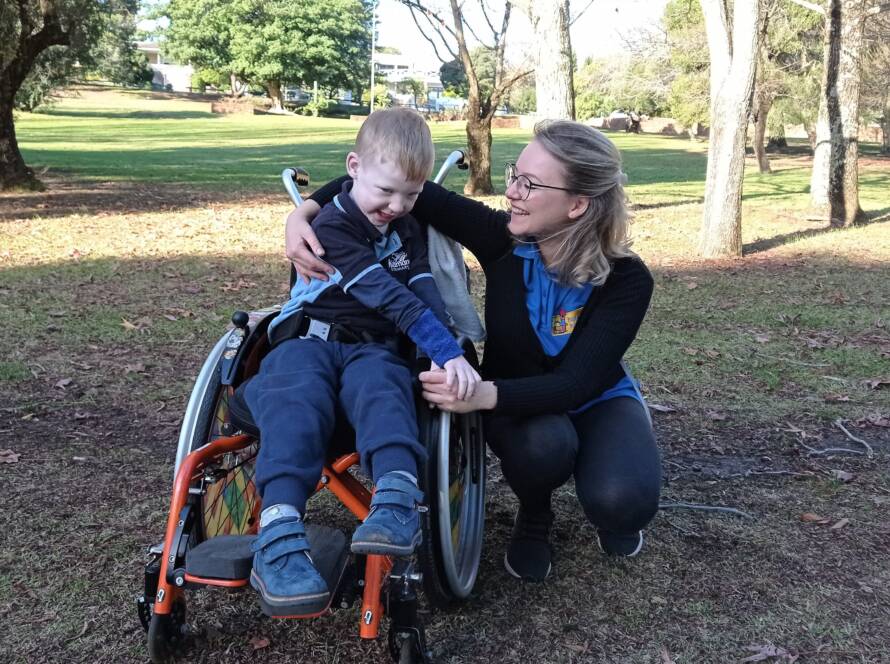If you’ve been considering a career that truly makes a difference, you might be wondering “why working in children’s residential care” is such a meaningful choice.
Unlike many jobs, this role directly impacts the lives of vulnerable children who need safety, structure, and emotional support.
When people talk about working in children’s residential care, they often highlight the challenges, but what stands out most are the rewards.
Every day, you are not just doing a job; you are shaping futures. The UK continues to see growing demand for skilled professionals in this area, making it both a stable and fulfilling career path.
As one residential care manager in London shared,
“The children don’t remember the paperwork you do, but they remember the moments you made them feel safe and cared for.”
That reminder sums up why so many choose this path.
Table of Contents
Key Takeaways
- Working in children’s residential care gives you the chance to make a direct impact on children’s lives while building a stable career.
- Roles in this sector offer both emotional fulfillment and professional growth, with clear paths for career progression in residential childcare.
- Employers place a high value on resilience, patience, and strong communication, which are key skills needed for children’s residential care.
- The sector offers varied opportunities, from children’s residential care jobs UK to specialist youth support work and management roles.
- Choosing this career means combining purpose with long-term stability in a growing field.
The Value of Working in Children’s Residential Care
Choosing a career in this field is about more than a paycheck.
Working in children’s residential care gives you the opportunity to provide stability, guidance, and compassion to children who may have faced neglect, abuse, or loss.
For many young people, staff in residential homes become trusted role models, often filling the gap left by disrupted family situations.
The emotional rewards are profound. You see the direct impact of your support when a child begins to trust again, achieves in school, or learns to manage their emotions.
These are the everyday victories that define the rewards of working in residential childcare.
Research from the Children’s Commissioner for England highlights that children in residential care are “three times more likely to have experienced significant trauma than their peers.”
This makes your role even more critical. As one experienced care worker said,
“You may be the first adult a child believes will actually stay.”
This is why so many professionals cite the benefits of working in children’s homes as both emotional fulfillment and the chance to change lives.
It is not an easy path, but it is one of the most meaningful choices in the wider child care career sector.
Skills and Qualities Needed for Success
Not everyone is suited to working in children’s residential care. The role demands both professional competence and personal strength.
Beyond formal qualifications, your attitude and resilience determine how well you can support children day-to-day.
Here are the essential qualities every care professional should bring:
- Emotional resilience: Children may test limits because of past trauma. You must stay calm and consistent, even in tough situations.
- Communication and patience: Explain routines, listen without judgment, and be patient to build trust. These soft skills often matter more than technical skills.
- Meeting requirements for children’s home staff: Compliance with qualifications for residential care workers, safeguarding knowledge, and training for children’s residential care staff are not optional; they ensure safety and professional standards.
- Personal qualities for childcare careers: Empathy, adaptability, and reliability matter just as much as credentials. They influence whether a child feels truly cared for.
These qualities are tested daily in the day-to-day life in children’s residential care.
When you bring both skill and heart, you create an environment where children feel safe enough to heal and grow.
Career Opportunities and Progression
One of the strongest reasons people choose this path is the variety of opportunities it offers.
Many start with children’s residential care worker jobs, often as support workers, and gain hands-on experience in day-to-day care.
These entry-level positions open the door to a long-term children’s residential support worker career.
Training is a core part of progression. Most staff are expected to complete the Level 3 Diploma in Residential Childcare, which equips them with the practical and theoretical skills needed.
Ongoing training for children’s residential care staff ensures you keep up with regulations, safeguarding standards, and best practices.
With experience, there are clear routes for growth. You might step into senior roles like team leader, deputy manager, or home manager.
Others move into specialist fields such as youth support work or therapeutic care.
For many, this is where the true career progression in residential childcare becomes rewarding, offering both professional status and higher earning potential.
As one senior manager put it,
“This career doesn’t just stop at support work. If you’re committed, the ladder is there to climb.”
Explore available children’s residential care jobs UK – Permanent to begin building a long-term career in this rewarding sector.
Challenges You Should Know About
While the rewards are significant, working in children’s residential care comes with real challenges. One of the biggest is the emotional demand.
Supporting children who have experienced trauma requires patience, empathy, and resilience, and it can be draining if you do not have the right coping strategies.
Another challenge is staff turnover in children’s homes. High turnover can disrupt routines, affect children’s stability, and increase pressure on remaining staff.
Consistency is key in residential care, so recruitment and retention strategies play a critical role.
Compliance adds another layer of responsibility. Every staff member must undergo DBS checks for children’s home staff and adhere to Ofsted children’s home staffing rules.
Keeping up with these legal requirements ensures children’s safety but adds complexity to the day-to-day management of a home.
Despite challenges, many professionals feel the emotional rewards and sense of purpose make this career demanding but very fulfilling.
High turnover can disrupt routines, which is why many homes rely on temporary children’s home recruitment to maintain stability.
Why Recruitment is Key in This Sector
The foundation of any successful residential care home is its staff, which is why children’s homes recruitment is so critical.
Hiring the right people ensures that children receive consistent, high-quality care while fostering a stable and supportive environment.
Poor recruitment can lead to staff turnover in children’s homes, disrupted routines, and lower job satisfaction.
Partnering with children’s home recruitment agencies can streamline the hiring process.
These agencies pre-screen candidates, verify qualifications, and help match professionals to roles that fit both their skills and the needs of the home.
This reduces recruitment time and ensures compliance with safeguarding standards. Safe hiring practices are non-negotiable.
From DBS checks for children’s home staff to verifying references and qualifications, thorough recruitment protects both children and staff.
A well-planned recruitment strategy is not just about filling positions; it directly impacts the quality of care and the long-term success of the home.
FAQ Section
What does a children’s home worker do?
A residential care worker provides day-to-day support for children, including emotional guidance, supervision, and help with routines. This is central to working in children’s residential care.
How to work in a children’s home UK?
Start by exploring children’s residential care jobs UK, completing necessary training, and meeting qualifications for residential care workers in the UK. Experience in youth support work or foster care employment can be advantageous.
What qualifications are required?
Most roles require a Level 3 Diploma in Residential Childcare or the ability to achieve it within two years. Ongoing training for children’s residential care staff is often mandatory.
What are the benefits of working in a children’s home?
Staff experience emotional fulfillment, professional growth, and career progression in residential childcare. The role offers unique insights into children’s lives and the rewards of working in residential childcare.
Final Thoughts
Choosing to work in children’s residential care is more than a career decision; it’s a commitment to shaping young lives while developing a meaningful, stable profession.
The personal and professional rewards, from emotional fulfillment to career growth, make residential childcare one of the most impactful roles in the sector.
If you want to make a real difference, check out our website, get the required qualifications, and join a team where your skills can change children’s lives.
Taking the step today could be the start of a rewarding journey that leaves a lasting impact.
Ready to start your career in children’s residential care?
Visit CARE2RECRUIT and find the role where you can truly make a difference.

